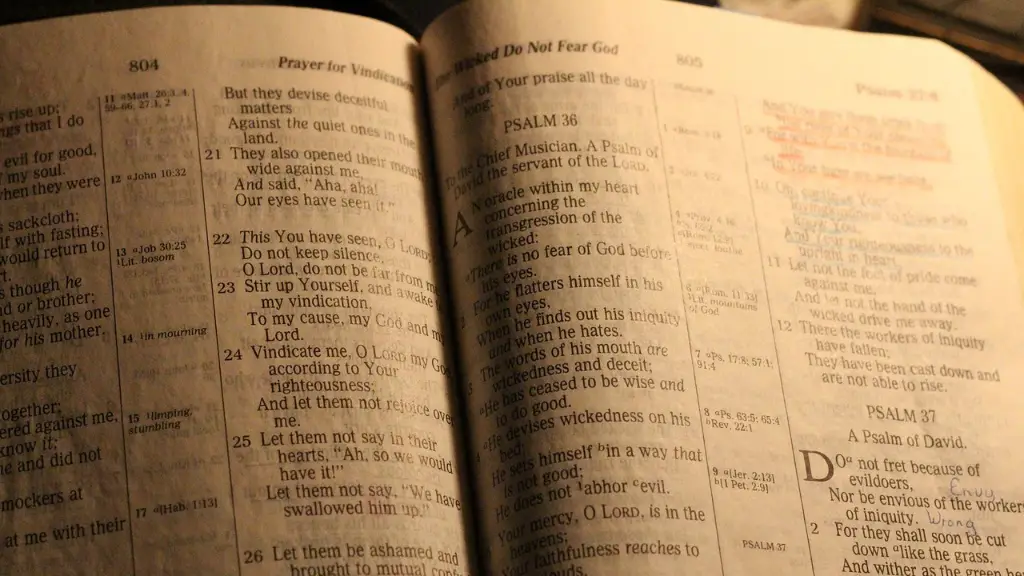Pontius Pilate was a Roman procurator who was responsible for the trial and execution of Jesus Christ. Pontius Pilate is a controversial figure in Christian history, and his role in the death of Jesus is still debated by scholars. Some Christians view Pontius Pilate as a reluctant participant in the crucifixion of Jesus, while others view him as a willing tool of the Roman Empire who was complicit in the suffering and death of Christ.
Pontius Pilate was a prefect of the Roman province of Judaea from AD 26–36. He is best known today for the trial and crucifixion of Jesus.
Why did Pontius Pilate condemn Jesus to death?
The Sanhedrin was an elite council of priestly and lay elders in ancient Israel. They were deeply threatened by Jesus’ teachings and arrested him during the Jewish festival of Passover. They dragged him before Pilate to be tried for blasphemy—for claiming, they said, to be King of the Jews.
Pontius Pilate was the Roman prefect (governor) of Judea, a subprovince of Syria. He is best known for his role in the crucifixion of Jesus. Pilate was a controversial figure in his time, and his actions during his governorship caused many people to view him negatively.
Why did Pilate wash his hands
Pontius Pilate is shown as a man who is trying to do the right thing, but is ultimately powerless against the mob. He washes his hands of the responsibility of Jesus’ death, showing that he does not want blood on his hands.
Pilate was a Christian who confessed his faith and was even martyred for it. He was a governor who allowed the Crucifixion to go ahead, and as a result, he was beheaded by order of Tiberius. Pilate was a brave man who stood up for his beliefs, even in the face of death.
What happened to Pontius Pilate after the crucifixion?
What happened to Pilate after he was dismissed from his position as governor of Judea is unknown. Celsus and Origen both documented events that occurred during Pilate’s governorship, but neither mentioned what happened to him after he was removed from office. Most modern historians believe that Pilate simply retired, although what exactly he did after leaving Judea is a mystery.
Pilate’s statement indicates that he did not believe that Jesus was guilty of any of the charges against him. This is significant because it shows that even those who were not followers of Jesus did not believe that he deserved to be crucified.
Did Pontius Pilate put Jesus to death?
Pontius Pilate was a controversial figure in his time. Some people saw him as a fair and just governor while others saw him as a tyrant. Regardless of how people felt about him, Pontius Pilate was an important figure in history.
The note is to inform the reader that in the New Testament, Pilate wrote “Jesus the Nazarene, King of the Jews” as a sign to be affixed to the cross of Jesus. John 19:21 states that the Jews told Pilate: “Do not write King of the Jews” but instead write that Jesus had merely claimed that title, but Pilate wrote it anyway.
Did Jesus heal Pilate’s wife
The Slavonic Josephus is an Old Church Slavonic translation of the Jewish historian Josephus with many legendary additions. In the Slavonic Josephus, Jesus heals Pilate’s dying wife.
There is no definitive answer to this question as the Bible does not give a clear chronology of Jesus’ life. However, considering the different accounts of his life, it is possible that he was between 33 and 40 years old when he died.
What did Jesus say before Pilate?
They put Jesus in chains and led him off to Pilate, the Roman governor. Pilate asked Jesus, “Are you the king of the Jews?” Jesus answered, “So you say,” but he said nothing in response to the accusations of the chief priests and elders, which surprised Pilate.
Tiberius was the second Roman emperor, reigning from 14 AD to 37 AD. Christianity began to spread during his reign, with Jesus of Nazareth and John the Baptist both preaching during this time. Pontius Pilate was the Roman governor of Judaea province during Tiberius’ reign, and he is the one who ordered the execution of Jesus. Christianity continued to grow during and after Tiberius’ reign, eventually becoming the dominant religion of the Roman Empire.
What religion were the Romans
The Roman Empire was a primarily polytheistic civilization, which meant that people recognized and worshiped multiple gods and goddesses. Despite the presence of monotheistic religions within the empire, such as Judaism and early Christianity, Romans honored multiple deities. The most prominent god in the Roman pantheon was Jupiter, who was associated with thunder, lightning, and the sky. Other notable Roman gods included Mars, the god of war; Mercury, the god of commerce; and Venus, the goddess of love.
It is important to remember that Jesus was a Jew. He was born to a Jewish mother in Galilee, which was a Jewish area at the time. All of his friends, associates, disciples, etc. were Jewish. He regularly worshipped at Jewish communal worship services, or synagogues. This is an important part of his story and should not be forgotten.
Would Judas go to heaven?
Looking to Jesus as the crucified, risen Savior is the only way to ensure salvation and assurance of being in heaven for eternity. This is what Jesus Himself said in Matthew 26:24. Therefore, Judas is not in heaven.
Aramaic is a language that has been spoken for centuries in the Middle East. It is the language of the historical Jesus and is still spoken by some people today. Aramaic has a rich history and has been influenced by many other languages over the centuries.
Conclusion
Pontius Pilate was the Governor of Judea who oversaw the trial of Jesus and ultimately ordered His execution.
Pontius Pilate was a Roman governor who oversaw the trial and crucifixion of Jesus Christ. He is a controversial figure in the Bible, as some believe he was unjust in his handling of Jesus’ case. However, others believe that Pilate was simply following orders from his superiors. Regardless of one’s opinion of Pilate, he is an important figure in the Bible and in the story of Jesus Christ.





